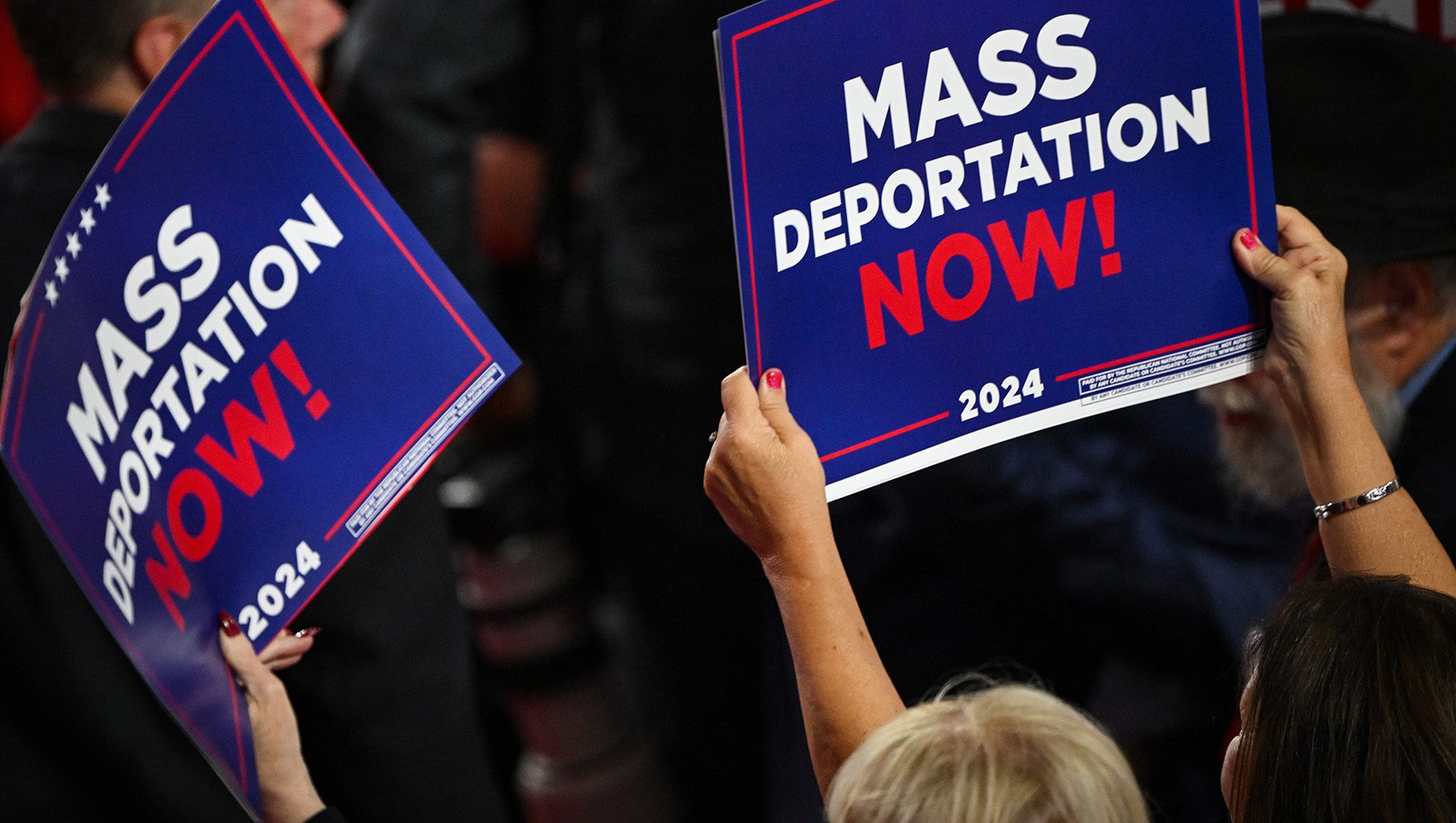We Must Combat Xenophobia. Here’s How We Can.
By Mark Hetfield
President, HIAS
Oct 29, 2024

Vilés Dorsainvil (C), executive director of the Haitian Community Help and Support Center, holds hands with U.S. pastors during a prayer at the end of a press conference calling for calm and support amidst growing tensions surrounding the Haitian community in Springfield, Ohio on September 12, 2024. (Roberto Schmidt/AFP)
Rising to the Moment is a new series on hias.org that offers personal reflections from HIAS President Mark Hetfield on the major themes underlying our work around the world. This inaugural essay considers how we can combat the rising threat of xenophobia.
“When a foreigner resides among you in your land, do not mistreat them. The foreigner residing among you must be treated as your native-born. Love them as yourself, for you were foreigners in Egypt.” Leviticus 19:33-34
We do not yet know who will win the upcoming U.S. presidential election, but already one thing is clear: This has been the most xenophobic campaign season in memory. Across the country, politicians have either wildly mischaracterized incidents in the news — or, in some cases, invented stories from whole cloth — to smear migrants.
It’s bad enough that this is happening. But what’s worse is that, when confronted with evidence of lies, demagogues in American public life have dismissed the truth as irrelevant. What matters to them, apparently, is that the slander of migrants like the Haitians in Springfield, Ohio serves their broader political interests.
In America today, xenophobia has become political currency.
In the wake of this national disgrace, I’ve been reflecting on the biblical commandment to love the stranger, repeated in different iterations no less than 36 times in the Torah.
Yet, apparently, 36 times is not enough.
The other Abrahamic faiths — Christianity and Islam — also reiterate this teaching over and over again. This commandment to love the stranger is repeated ad nauseam in our holy books for a reason — not because it is the most important of the commandments, but because it is perhaps the easiest to forget. Scapegoating others has always been much easier than working together to solve the challenging problems that affect all of us.
Scapegoating others has always been much easier than working together to solve the challenging problems that affect all of us.
Our faith traditions are clear on the duty to combat xenophobia. Yet politicians, parties, and platforms today increasingly embrace it.
The 2024 U.S. Republican Party platform, among other things, promises to “stop the open-border policies that have opened the floodgates to a tidal wave of illegal Aliens, deadly drugs, and Migrant Crime” and, as former President Trump has vowed on multiple occasions, “carry out the largest deportation in American history.” The 2024 Democratic Party platform, while including more inclusive language about immigrants and refugees, also plays into the politics of fear with an intense focus on the border and rolling back asylum protections.
Xenophobia, however, is not unique to the United States. It is a global phenomenon.
In the U.K. and Israel, elected officials have blamed asylum seekers for social ailments and threatened them with deportation to countries they have never even been to.
Across Europe, anti-immigrant political parties are on the rise. For the first time since the Second World War, in nearly every European country, parties with xenophobic platforms are now either the ruling party or the biggest threat to the ruling party.
And while South Africa once inspired us in its struggle against racism, today it has become over-run with xenophobia. Recently, a South African candidate for Miss Universe was publicly bullied to leave the contest because, although born and raised in South Africa, she had Nigerian and Mozambican heritage.
Combating this global trend won’t be easy, but it must be done. To start, it’s important to remember that treating the foreign-born as ourselves isn’t just a moral imperative. It also happens to serve our own interests.
History has repeatedly shown that immigrants and refugees are net contributors to our society. Take, for example, the study commissioned by the Trump administration to calculate the burden of refugee resettlement to the American taxpayer. The study found that refugees, over a 10 year period, actually contributed $63 billion more in federal, state and local services than they took in services. Rather than trumpet these results, the Trump administration killed the study. But the findings are no anomaly. The Biden administration updated the study and reported that, over a 15 year period, the net contribution of resettled refugees had climbed to almost $124 billion.
The arrival of Haitian migrants in Springfield is a good example. While Senator J.D. Vance, former President Trump’s vice-presidential running mate, characterizes their impact as catastrophic, those actually living in Springfield tell a different story. Business owners in the city have said that Haitians are hardworking, honest, and responsible. And according to Governor Mike DeWine, himself a Republican, many businesses in the city would have closed after the pandemic had it not been for Haitian workers.
I’m sympathetic to those who feel a deep sense of anxiety about the future, whether from political instability, economic ups and downs, and the looming threat of climate change. What we need is for people, whether they’re in America or an ocean away, to come together in search of solutions that will make life better for all of us.
Xenophobia is not the answer. There’s a reason that our holy texts, in use for thousands of years, remind us of that time and again.





